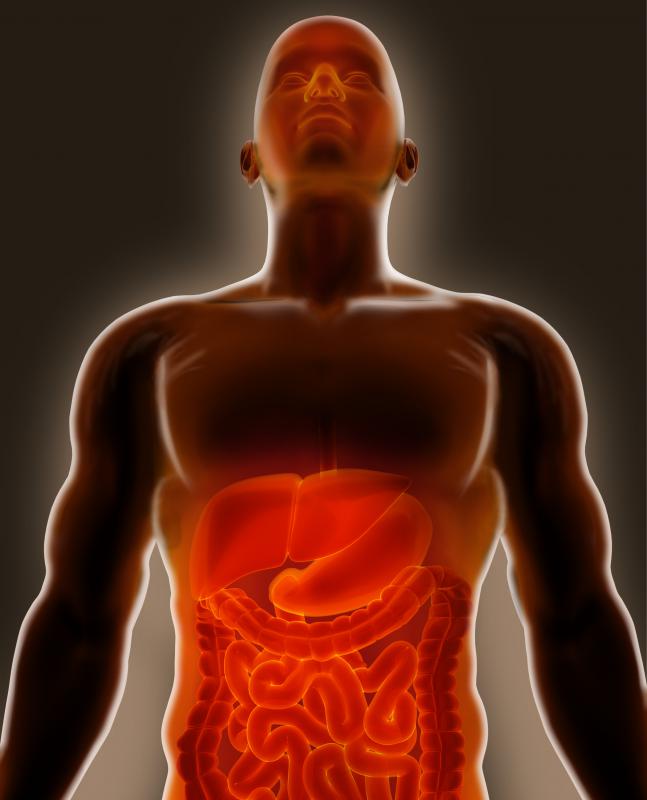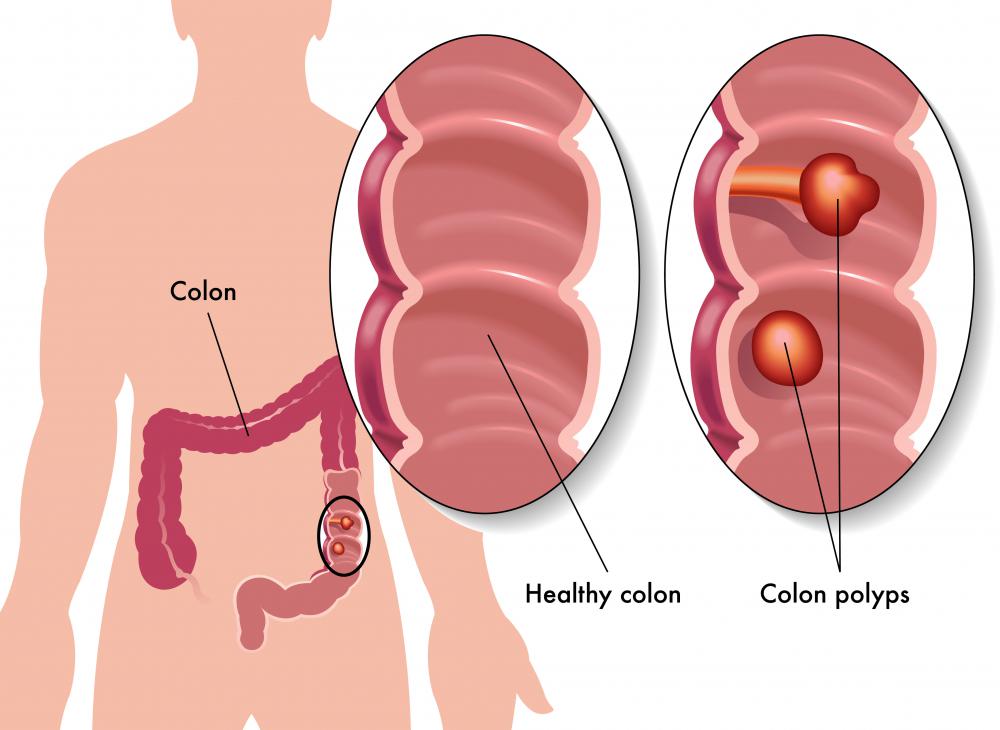At TheHealthBoard, we're committed to delivering accurate, trustworthy information. Our expert-authored content is rigorously fact-checked and sourced from credible authorities. Discover how we uphold the highest standards in providing you with reliable knowledge.
What is the Digestive Tract?
The digestive tract is a long tube within the body that consists of organs that aid in the digestion of food. Most adults have a digestive tract that is about 30 feet (9.14 m) long. When a person eats, the food uses this tube to travel from the mouth to the esophagus. After reaching the esophagus, the food moves its way to the stomach. When it arrives at the stomach, enzymes continue to break down the food.
This food moves through the small intestine to the bowel where the food is completely digested and nutrients are absorbed. Any undigested food travels to the large intestine where water and salt is eliminated from it. This material is then transformed into a brown solid material that is stored in the rectum so it can be expelled as feces.

The digestive tract, which is the main component of the digestive system, is an important part of the body. This is because it converts food into a material that makes it easier for the body to use for nourishment. The digestive system breaks down food into the smallest particles so they can be absorbed into the blood stream. If the digestive system is not working properly, a person can experience nausea, irritable bowel syndrome, a virus, or other problems that relate to the digestive system. If left untreated, some digestive disorders can lead to death.

People who suffer from irritable bowel syndrome may suffer from painful constipation, frequent diarrhea, or alternating bouts of both constipation and diarrhea. Changing to a high-fiber and low-fat diet can often help soothe these symptoms. A physician will often prescribe medication as well.
Other people who experience problems with the digestive tract may be afflicted with Crohn's disease, proctitis, or colitis. All three conditions are considered inflammatory bowel disease. Both colitis and Crohn's disease are characterized by bloody diarrhea. A person with either of the two diseases will experience abdominal pain as well.

Someone with proctitis will usually produce stools that contain blood. A proctitis sufferer will have difficulty with bowel movements despite the frequent urge to do so. Changes in diet and the attention of a physician are needed for those who suffer from any of these inflammatory bowel diseases.
Another disorder of the digestive tract is intestinal polyps, growths that occur in the digestive tract. People usually experience bleeding from the rectum when polyps are present. It's important that a physician removes polyps from the digestive tract, as they are believed to be the initial stages of colon cancer.

Colon cancer, one of the most serious disorders of the digestive tract, must be treated by a doctor as soon as possible. Treatment includes surgery to remove the cancer in addition to radiation and chemotherapy treatment. Symptoms of colon cancer are abdominal pain, rectal bleeding, a decline in health, weight loss, decrease in appetite, and fatigue.
AS FEATURED ON:
AS FEATURED ON:
















Discussion Comments
Has anyone had nausea as a side effect to this condition?
Post your comments